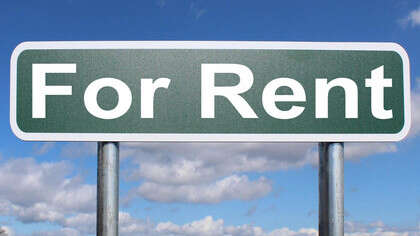
A new report from Daft shows the scale of Ireland's housing crisis.
The property website's fourth quarter rental report has found the number of available homes at its lowest ever since Daft began tracking such figures in 2006.
On February 1st there were just 1,397 homes available for rental in the entire country.
712 of the homes were available in Dublin, a drop of over 75% of the February average for the last two decades. Outside Dublin the availability of rental homes has dropped to below one third of pre-pandemic levels with just 685 homes on offer.
The average national rent has risen by 10.3% in the past year to €1,524 per month, with a quarterly rise of 3%.
In Dublin the average rent has seen an increase of 8.9% on last year and now stands at €2,056 per month, with a quarterly increase of 4.1%.
Outside Dublin, the city with the largest year on year increase was Waterford with a rise of 11.3%. Limerick rose by 10.3%, Cork by 6.3% and Galway by 8.8%.
Daft's report was authored by Associate Professor of Economics at Trinity College Dublin Ronan Lyons.
"The strong rebound in economic activity, as public health restrictions relax, has translated into a strong demand for rental accommodation," said Lyons. "Coming at a time of very weak rental supply, this has pushed rents up further, with inflation at its highest rate nationwide since early 2018. The number of live rental ads is at its lowest ever on record, with fewer than 1,400 live ads on 1 February."
Threshold chief executive John-Mark McCafferty advised private renters to contact the charity if they receive rent increases.
"With the rising cost of living, it will become increasingly difficult for private renters to pay these increases, as well as their other bills," he said. "These renters will always prioritise the money required to keep a roof over their head, meaning they may go without heat or be forced to cut back on other essential expenditure."


 Scattered Showers & Chilly Temperatures Set To Continue This Weekend
Scattered Showers & Chilly Temperatures Set To Continue This Weekend
 New Film To See The Late Charlie Bird 'Breaking One Last Story'
New Film To See The Late Charlie Bird 'Breaking One Last Story'
 "I am deeply sorry you had to fight for so long" Taoiseach to Stardust families
"I am deeply sorry you had to fight for so long" Taoiseach to Stardust families
 'We Failed You' - Taoiseach Apologises To Stardust Families
'We Failed You' - Taoiseach Apologises To Stardust Families
 Nighttime Talks with Niall Boylan
Nighttime Talks with Niall Boylan